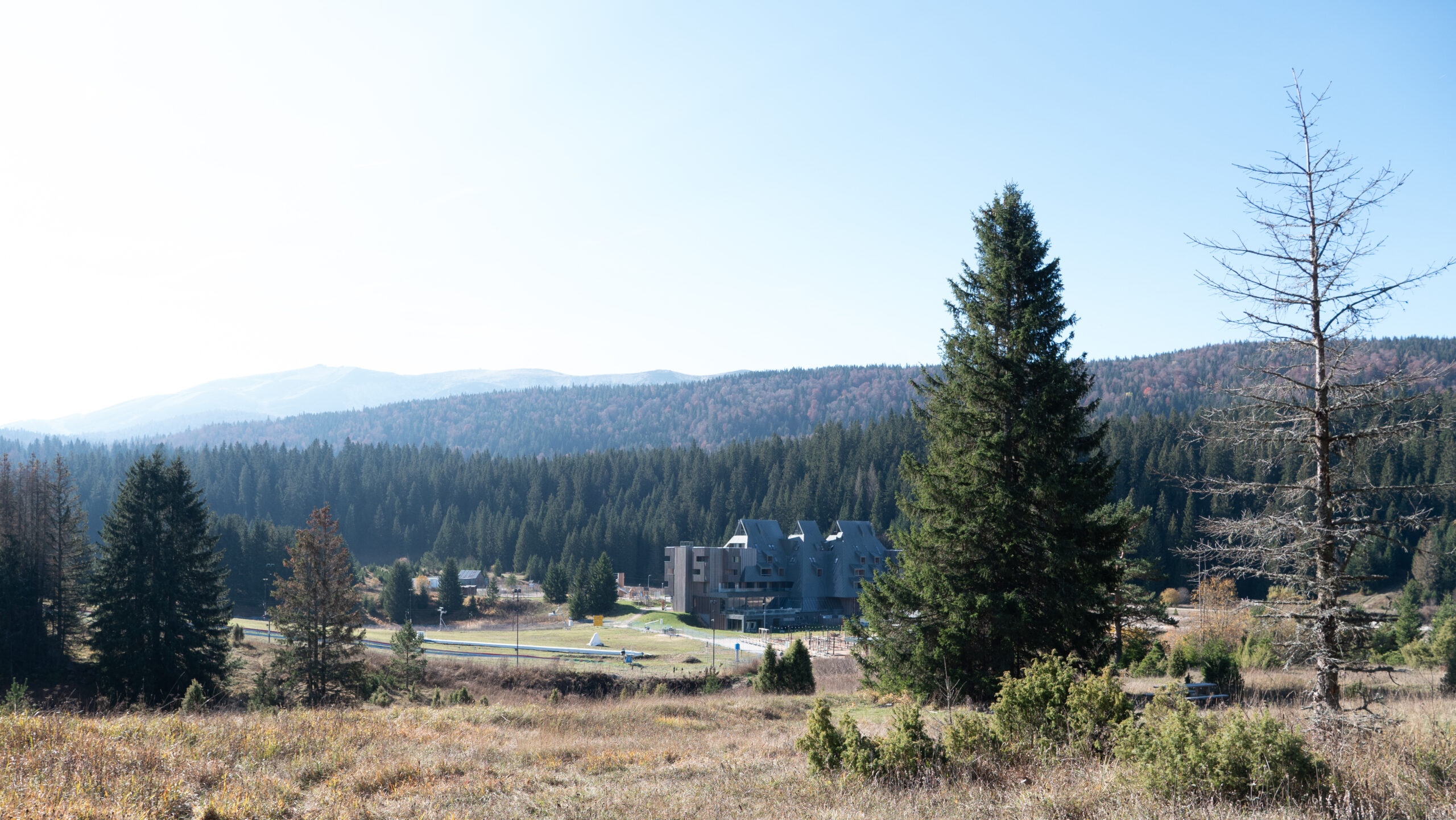
Weaving care into organisational operations: The Logistics of Care
When Weaving Liberation was envisioned as an organisation, we wanted the principles of solidarity and liberatory practices to also be emulated internally, in our operations. We thus decided earlier on to put more consideration and intention in the way we hold spaces, centring the communities – and therefore the individuals – we work with, their needs and their contexts.
Wellness is not an additional responsibility or luxury. It’s actually the work. It’s about an organisation being so well that it has the energy to produce sustainable results for its constituency. Hope Chigudu and Rudo Chigudu, Strategies for Building an Organisation with a Soul
An important part of our work (and the field in general), and the work of people we partner with, involves attending and organising events, whether it’s meetings, workshops, trainings, fellowships, or retreats. So, we embedded an infrastructure of care into our event planning and management—moving beyond one-off accommodations to establish an adaptable method. We had already started thinking about what it looked like to implement those practices during the Decolonising the digital rights field in Europe programme, and as we organised Digital Rights for All events. And, over this past year, we have deepened our commitment to care as both a political stance and a practice, recognising that the work of justice in hostile environments cannot be sustained without intentional structures of collective support. Our approach rejects the false binary between impact and care, understanding that the labour of building solidarity, redistributing resources, and nurturing wellbeing could be a foundation for resistance.
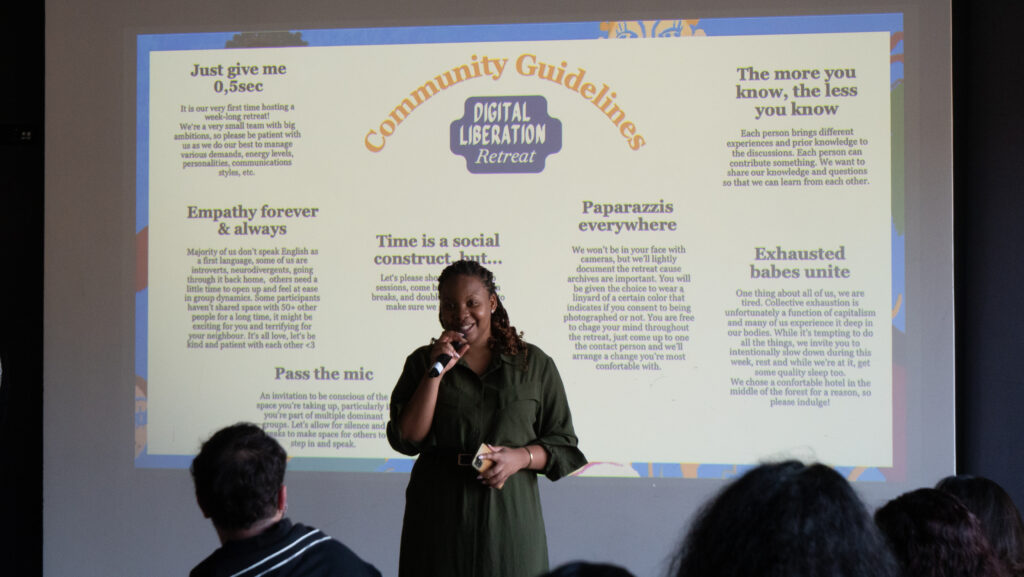
When you work with violence, often it seeps in your heart. And you can’t get it out. Some cultures call it trauma. Others might say you are heart sick. It doesn’t matter what you call it. We just need to understand it. Jane Barry and Jelena Dordevic, What’s the point of revolution if we can’t dance?
This understanding manifests in how we design our spaces. This has meant designing our convenings—from the Digital Liberation Retreat to our Knowledge and Imagining spaces—with trauma-informed principles in mind.
In practice, this is how we choose to organise events:
We are prioritising retreat settings! We aim to create an atmosphere that allows participants to imagine, exchange, share, create, connect, etc., away from the daily harms they are exposed to. We do not pretend to create a safe space as we know it can never be guaranteed. We, for example, carefully select remote venues in pre-researched destinations advised by existing and potential partners – like organising the Digital Liberation Retreat in the historic Bosnian mountains with the support of local feminist organisers. We want the hotels hosting us to understand the spaces we wish to provide and thus beyond briefing them, we create a relationship with the hotel team where they can also feel like partners. From conscientiously selecting destinations and venues to briefing and creating trust with the hosting hotels, we have methodologically worked to mitigate the risk of harmful incidents.
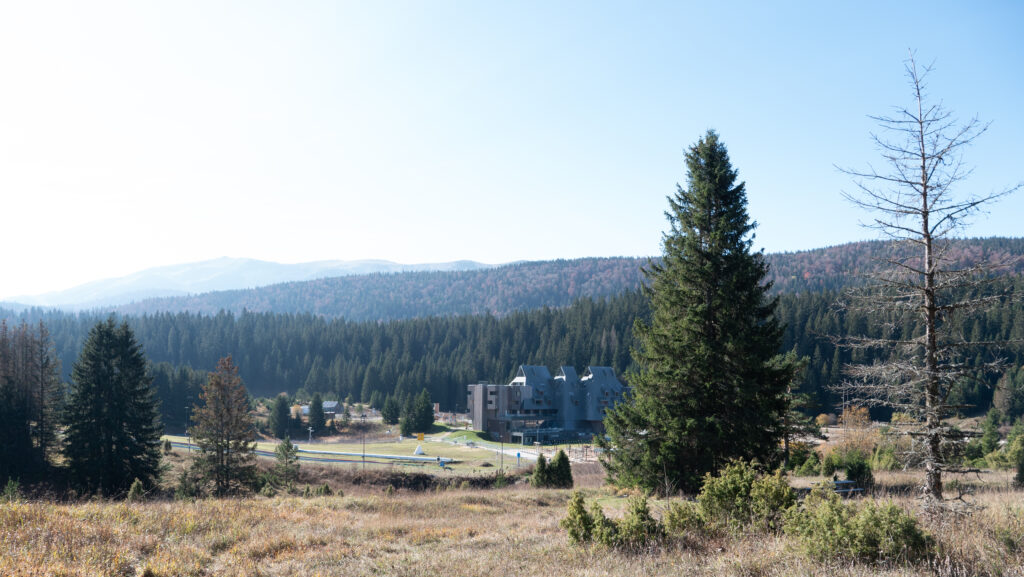
We are choosing to be adaptable! We prioritise flexibility in attendance and participation, recognising that accessibility is about physical accommodations and acknowledging the uneven toll of oppressions. From considerations for specific needs – parenthood, care-giving responsibility, accessibility, travel discrimination, visa apartheid, etc. – to collaboration with local partners, we have methodologically wanted to mitigate specific socio-political systemic barriers to participation in organising spaces experienced by individuals.
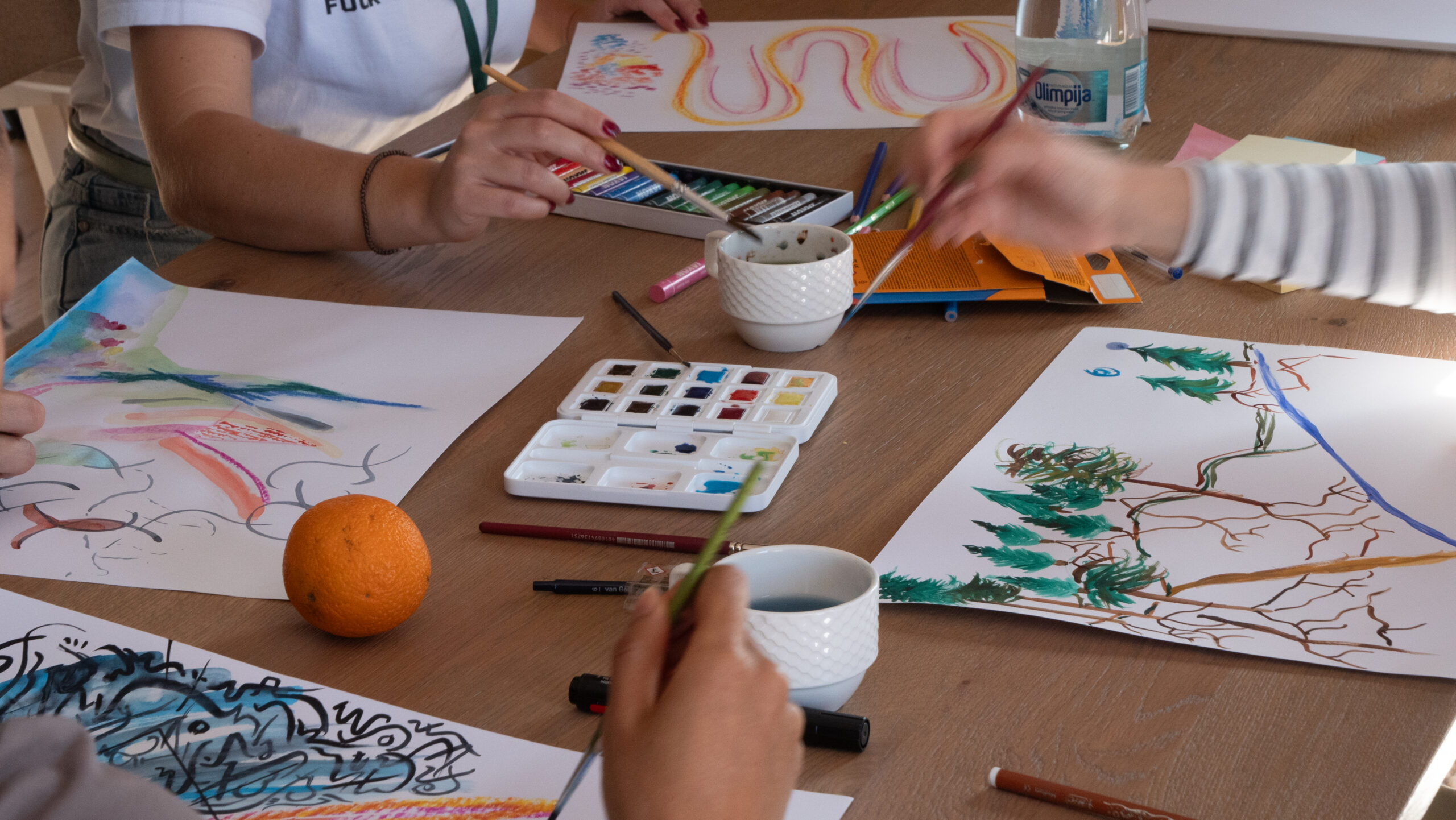
We are encouraging rest! We do not dissociate the work we do from the realities of the individuals we do it with and the socio-economic and political context(es) that affect(s) us. This means creating spaces where participants can set boundaries for themselves, share “openly”, and recharge amidst the exhaustion of challenging/fighting systemic harms on energy, time, and emotional capacity. From agenda design to facility provision, we have embedded rhythms of restoration and included elements of healing justice throughout our gatherings.
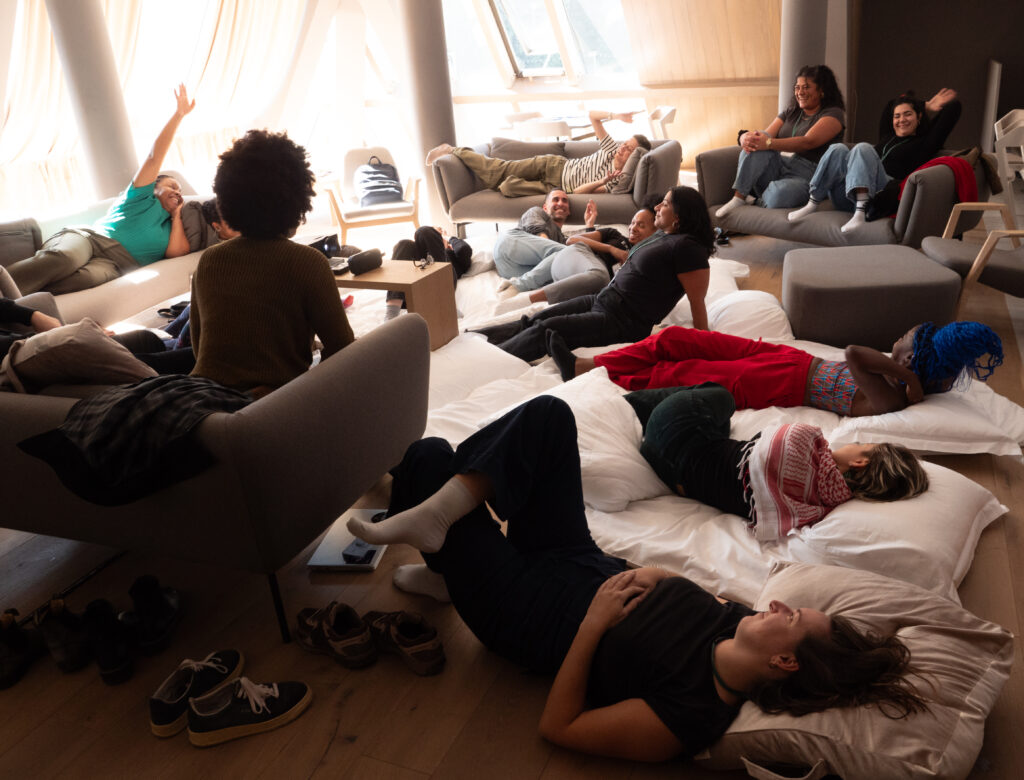
We are centring care! Our approach aims for the labour of holding spaces to not further fall on those already bearing the brunt of structural violence so we can focus on the moment – strategising, resting, healing, sharing, learning, organising, imagining, creating, etc. During the planning and holding of our events, we choose to use tools that simplify the participants’ experiences; we are transparent about, but flexible with, our policies; we are sincere about our capacity; and we are careful about the context(s) we are exposing people to. We also focus on building meaningful relationships with participants, with local partners, with colleagues and with the hosting hotel staffs, as well as providing spaces for individuals to connect around nature, around music and food, professionally and personally – because justice work is also personal.
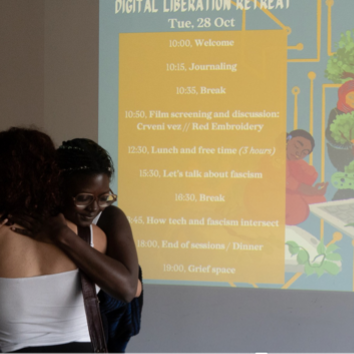
What we observed over the past year(s) in response to centering care is a reciprocated sense of collective responsibility for mutual care and more space for participants to contribute beyond the traditional lines.
To build community requires vigilant awareness of the work we must continually do to undermine all the socialization that leads us to behave in ways that perpetuate domination. bell hooks, Teaching Community
This approach is a learning process we have developed from the Decolonising programme and organising Digital Right for All events and that we continue to re-shape. Our partnerships with communities are rooted in iterative collaborations and support: we adapt timeline and decision-making processes to align with the material realities of the people we work with, not extractive nonprofit demands. We also want to reflect this approach in the way we mobilise resources. We wish to channel care into every aspect of our practice and encourage solidarity; we wish to recognise care as an intentional practice with a methodological approach. It’s how we sustain the relationships that make shared strategy possible, when strategising, organising, co-creating, etc. When we centre care, we are not just mitigating harm; we can imagine a world we are fighting for: one where the work of justice is inseparable from the practice of caring for each other.
This year, we plan to publish the methodology behind this approach, as a guide for event organising, but also to support advocacy to funders about the critical role of resourcing care infrastructure in movement work.
Images by Alice Z. Jones
